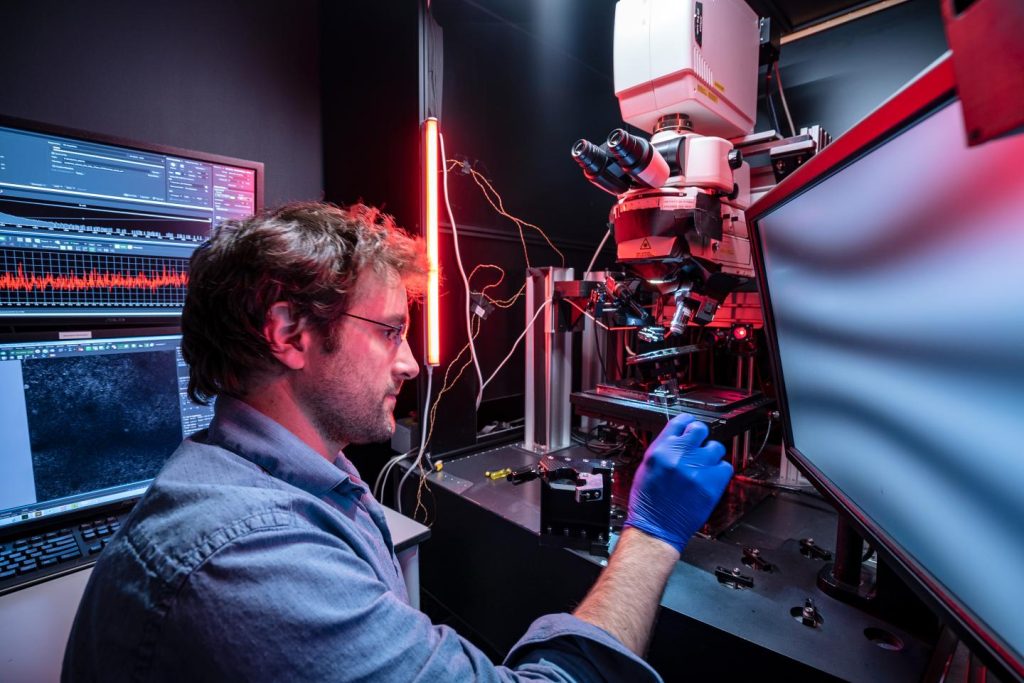The Allen Institute’s OpenScope program allows scientists to study various aspects of the brain, including the effects of substances like magic mushrooms on individual neurons, the role of memories in shaping perceptions, and how the brain processes visual stimuli. One of the program leaders, Jerome Lecoq, is particularly excited about an experiment focused on how sensory data impacts consciousness and potentially modifies behavior. This experiment is being developed collaboratively through an open-source process, inviting input from the international research community.
While authors and filmmakers have long explored the mysteries of consciousness, the Allen Institute’s Brain Observatory takes a more scientific approach to understanding the brain. Created by tech entrepreneur and philanthropist Paul Allen, the Brain Observatory studies thousands of neurons in the mouse brain, particularly focusing on the visual system. Experiments involve activities such as having mice watch movies to see how their brain cells respond to visual stimuli. The institute ensures that its resources are available to researchers through a proposal process, similar to how time is reserved at other scientific facilities.
The current year’s OpenScope program includes a crowdsourced experiment focusing on predictive coding, a theory about how the brain generates and updates mental models of the environment. Researchers are collaboratively designing experiments to explore how the brain identifies and corrects errors in this process. In addition to this experiment, other projects are planned to investigate how cells react to psychoactive substances like psilocybin, the impact of past experiences on present perceptions, how the brain processes motion, and the role of the visual cortex in recognizing textures.
The project led by researchers from Humboldt University of Berlin aims to understand how psilocybin, the compound in magic mushrooms, affects neuron activity in living mice. This could provide insights into perception and consciousness and help in developing targeted therapies for mental health conditions. Other projects focus on how the brain processes visual information related to changes over time, motion detection, and texture recognition. The OpenScope program demonstrates a new model for neuroscience that emphasizes data acquisition and sharing, enabling individual labs to pursue unique scientific goals.
Jerome Lecoq, along with Christof Koch, leads the OpenScope program at the Allen Institute. The program embodies an open-science approach, allowing for global collaboration and data sharing in neuroscience research. Lecoq sees this as the future of neuroscience, in line with Paul Allen’s vision for advancing understanding of the brain. By following an open-source process and embracing collaboration, the Allen Institute is at the forefront of exploring the complexities of the brain and consciousness. Researchers worldwide are empowered to contribute ideas and conduct experiments using the institute’s tools and resources.











